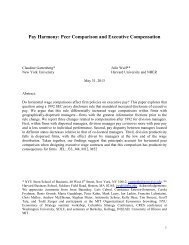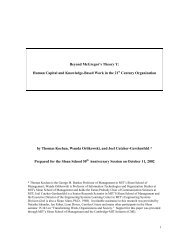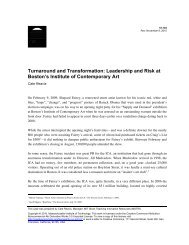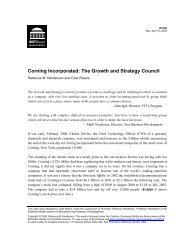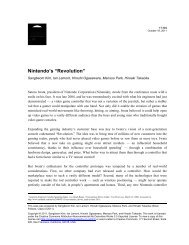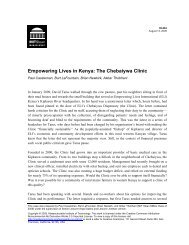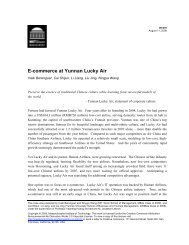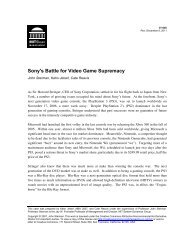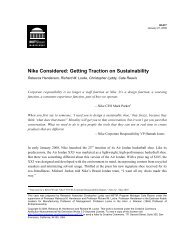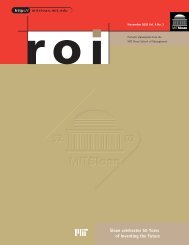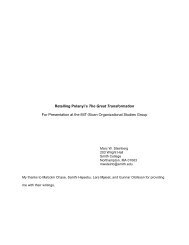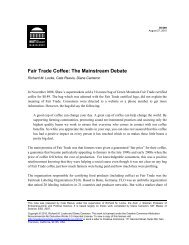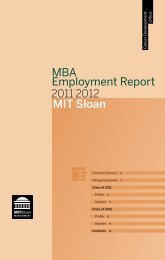Understanding earnings quality - MIT Sloan School of Management
Understanding earnings quality - MIT Sloan School of Management
Understanding earnings quality - MIT Sloan School of Management
Create successful ePaper yourself
Turn your PDF publications into a flip-book with our unique Google optimized e-Paper software.
5.3.1 The Board <strong>of</strong> directors and <strong>earnings</strong> <strong>quality</strong><br />
Several papers document that more independent boards, measured by a greater proportion <strong>of</strong><br />
outsiders for example, and higher audit committee <strong>quality</strong>, measured by independence and meeting<br />
frequency for example, are associated with less <strong>earnings</strong> management, measured by discretionary<br />
accruals, the likelihood <strong>of</strong> the firm avoiding an <strong>earnings</strong> decline and negative <strong>earnings</strong> surprises,<br />
accounting manipulations, and internal control <strong>quality</strong> (e.g., Beasley, 1996; Klein, 2002; Vafeas,<br />
2005; Farber, 2005; Abbott, Parker, and Peters, 2004). Krishnan (2005) documents a positive<br />
association between audit committee <strong>quality</strong> and <strong>quality</strong> <strong>of</strong> internal control procedures. García<br />
Lara, García Osma, and Penalva (2009) find a positive association between commonly used<br />
governance proxies for effective monitoring and asymmetric timeliness.<br />
Larcker et al. (2007) start with 39 governance variables and use principal component analysis<br />
to extract governance factors. They find mixed and weak evidence <strong>of</strong> associations between the<br />
fourteen governance factors and <strong>earnings</strong> <strong>quality</strong> measured by discretionary accruals and<br />
restatements. Larcker and Richardson (2004) find that strong governance mitigates the negative<br />
relation between audit fees and accruals.<br />
The studies consistently suggest a positive association between audit committee <strong>quality</strong> and<br />
<strong>earnings</strong> management (with the exception <strong>of</strong> Larcker et al., 2007). This result is not surprising<br />
because the audit committee’s primary responsibility is to oversee the financial reporting process.<br />
Thus inferences from studies that predict an association between audit committee <strong>quality</strong> and<br />
accruals <strong>quality</strong> have the greatest internal validity ceteris paribus. The theory that underlies tests <strong>of</strong><br />
an association between BOD <strong>quality</strong> and <strong>earnings</strong> management, however, is weaker. Directors are<br />
usually involved with decisions at a high level such as setting overall strategy (Adams, Hermalin,<br />
and Weisbach, 2008). Hence, while it may be reasonable to argue a correlation between BOD<br />
93



